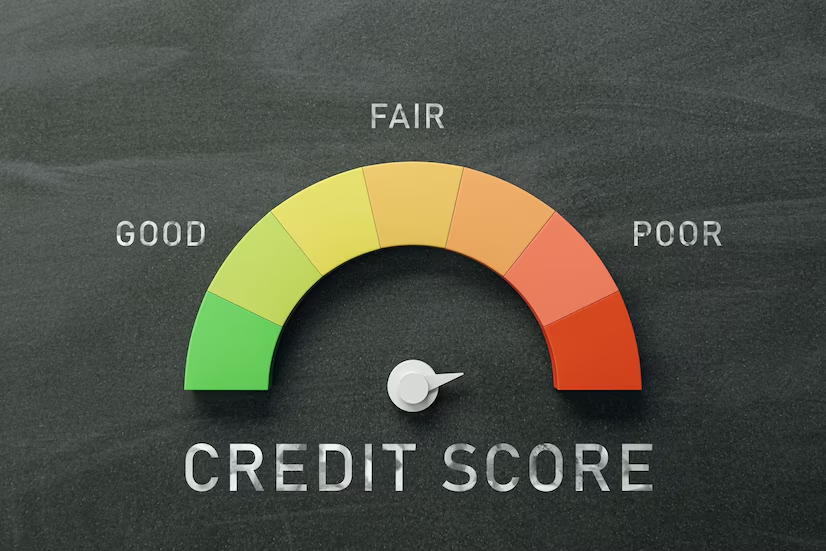Your credit score plays a crucial role in your financial life, especially when it comes to major transactions like applying for a mortgage. A higher credit score can lead to better loan terms, lower interest rates, and greater borrowing power. If you’re planning to buy a home and need a mortgage, boosting your credit score beforehand can save you thousands of dollars over the life of your loan. In this comprehensive guide, we’ll explore the top tips for improving your credit score before applying for a mortgage, helping you secure the best possible financing for your dream home.
Understanding Credit Scores
Before diving into credit improvement strategies, let’s start by understanding what a credit score is and how it impacts your ability to secure a mortgage:
- What is a Credit Score? A credit score is a numerical representation of your creditworthiness, based on your credit history and financial behavior. It’s calculated using information from your credit report, such as your payment history, credit utilization, length of credit history, types of credit accounts, and new credit inquiries. Credit scores typically range from 300 to 850, with higher scores indicating lower credit risk.
- Why is Your Credit Score Important for a Mortgage? Lenders use your credit score to assess the risk of lending you money for a mortgage. A higher credit score demonstrates responsible financial management and makes you a more attractive borrower to lenders. It can lead to lower interest rates, reduced fees, and higher loan amounts, ultimately saving you money on your mortgage.
Tips to improve your credit score before applying for a mortgage
- Check Your Credit Report Regularly:
Start by obtaining free copies of your credit reports from the three major credit bureaus: Equifax, Experian, and TransUnion. Review each report carefully for errors, inaccuracies, or fraudulent activity. Dispute any discrepancies you find to ensure your credit report is accurate and reflects your true credit history.
- Pay Your Bills on Time, Every Time:
Payment history is the most significant factor influencing your credit score, accounting for approximately 35% of your score. Make it a priority to pay all your bills on time, including credit card payments, loan installments, utility bills, and rent payments. Set up automatic payments or reminders to avoid missing due dates.
- Reduce Credit Card Balances:
Credit utilization, or the amount of available credit you’re using, is another critical factor in your credit score calculation. Aim to keep your credit card balances low relative to your credit limits, ideally below 30%. Pay down existing balances and avoid maxing out your credit cards, as high utilization can negatively impact your score.
- Avoid Opening New Credit Accounts:
Opening multiple new credit accounts within a short period can raise red flags for lenders and potentially lower your credit score. Limit new credit inquiries and avoid opening unnecessary accounts, such as store credit cards, before applying for a mortgage. Each credit inquiry can temporarily ding your score, so be strategic about new credit applications.
- Keep Old Accounts Open:
The length of your credit history is a factor in your credit score, with longer credit histories generally viewed more favorably by lenders. If you have old, inactive accounts with positive payment histories, consider keeping them open to maintain a longer credit history. Closing old accounts can shorten your average account age and potentially lower your score.
- Diversify Your Credit Mix:
Having a diverse mix of credit accounts, such as credit cards, installment loans, and mortgages, can positively impact your credit score. If you only have one type of credit account, consider diversifying your credit mix by responsibly adding new types of credit over time. However, avoid taking on unnecessary debt simply to diversify your credit portfolio.
- Work with a Credit Counselor:
If you’re struggling to manage your finances or improve your credit score on your own, consider seeking assistance from a reputable credit counseling agency. Credit counselors can provide personalized guidance, budgeting tools, and debt management strategies to help you get back on track and achieve your financial goals.
FAQs
- How much can improving my credit score impact my mortgage interest rate?
Improving your credit score can have a significant impact on your mortgage interest rate. Even a slight increase in your credit score can result in lower interest rates, potentially saving you thousands of dollars over the life of your loan. Lenders typically offer the most favorable rates to borrowers with excellent credit scores, so every point can make a difference.
- How long does it take to see improvement in my credit score?
The timeline for seeing improvement in your credit score can vary depending on factors such as the extent of the changes you make, the reporting cycle of your creditors, and the credit scoring model used. Generally, you may start to see modest improvements within a few months of implementing positive credit behaviors, but significant changes may take longer, sometimes up to a year or more.
- Will paying off my debts all at once improve my credit score quickly?
While paying off debts is generally beneficial for your credit score, the impact on your score may not be immediate or as significant as you expect. Credit scoring models consider various factors, including your payment history, credit utilization, and length of credit history. Paying off debts can improve your credit utilization ratio and demonstrate responsible financial behavior, which can gradually boost your score over time.
- Should I close old accounts with negative payment history to improve my credit score?
Closing old accounts with negative payment history may not necessarily improve your credit score and could potentially harm it. Closed accounts still factor into your credit history and can impact factors such as your credit utilization ratio and average account age. Instead of closing old accounts, focus on making timely payments and maintaining a positive credit history to improve your score.
- How do credit inquiries affect my credit score when applying for a mortgage?
Credit inquiries, also known as “hard inquiries,” can temporarily lower your credit score by a few points. When you apply for a mortgage, lenders will pull your credit report to assess your creditworthiness, resulting in a hard inquiry. While multiple inquiries within a short period can raise concerns for lenders, credit scoring models typically treat multiple inquiries for a mortgage as a single inquiry, minimizing the impact on your score.
- Can I still qualify for a mortgage with a low credit score?
While it may be more challenging to qualify for a mortgage with a low credit score, it’s still possible. Some lenders offer specialized loan programs for borrowers with less-than-perfect credit, such as FHA loans or government-backed loans. These programs may have more lenient credit score requirements and lower down payment options, making homeownership more accessible to individuals with lower credit scores.
- Should I use credit repair companies to improve my credit score before applying for a mortgage?
While credit repair companies may promise to fix your credit quickly, it’s essential to approach them with caution. Many credit repair companies charge high fees for services that you can often do yourself for free. Additionally, some credit repair practices may be misleading or even illegal. Instead of relying on credit repair companies, focus on adopting responsible credit habits and working directly with creditors to address any issues on your credit report.
Conclusion
Improving your credit score before applying for a mortgage is a proactive step that can significantly impact your ability to secure favorable loan terms and save money on your home purchase. By following these top tips and adopting responsible financial habits, you can elevate your credit score and position yourself as a strong borrower in the eyes of lenders. Remember to monitor your progress regularly, stay disciplined with your finances, and consult with a mortgage professional for personalized guidance throughout the homebuying process. With dedication and perseverance, you can achieve your goal of homeownership and embark on the next chapter of your life with confidence.


















